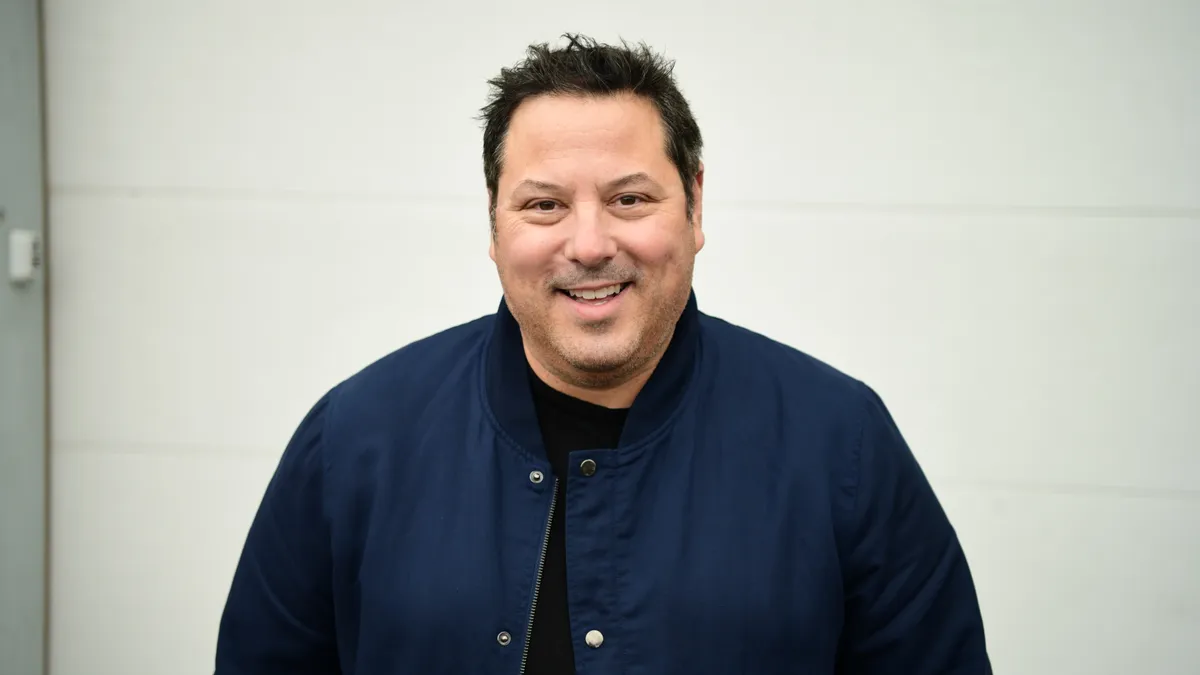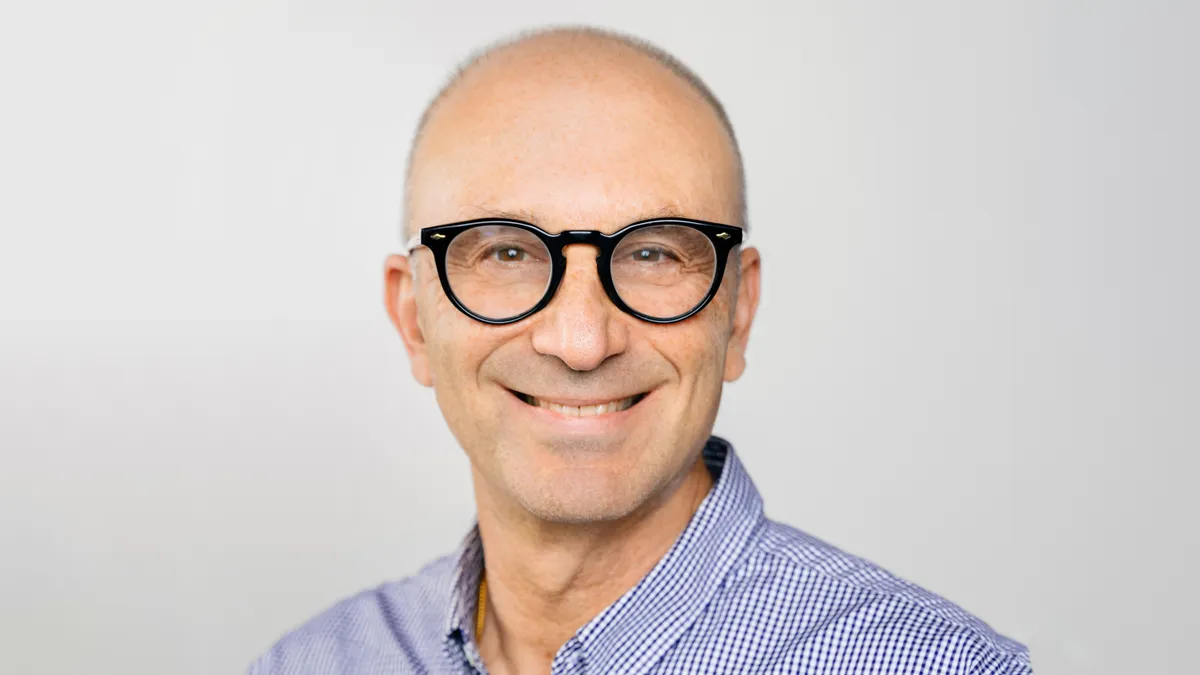Greg Grunberg has been a mind-reading superhero, an intergalactic fighter pilot and an inventive friend to Keri Russell’s Felicity. But even with his successful acting career, the role Grunberg perhaps takes the most pride in is patient advocate for those with epilepsy — including his 27-year-old son, Jake.
Although epilepsy is not particularly rare, it’s a condition that’s not well understood or discussed enough, Grunberg said. So the actor and producer has embarked on a journey. In partnership with Jazz Pharmaceuticals, which through the 2021 acquisition of GW Pharmaceuticals, sells the epilepsy drug Epidiolex, Grunberg is working to open up a wider conversation about the condition.
In 2018, Epidiolex became the first drug approved by the FDA containing cannabidiol oil, which is derived from marijuana, and Grunberg said it’s worked well to control seizures in three rare and serious forms of epilepsy.
"At the beginning, I wish I had someone to call on. And now, I’ve tried to become that for other people."

Greg Grunberg
Actor and epilepsy advocate
Now, Jazz and Grunberg are aiming to connect the epilepsy community through a series of videos called “Talk About It,” where fellow celebrities give voice to the issues epilepsy patients are facing. He also partnered with Jazz to crank out a well-produced series called “The Care Giver,” in which he tells epilepsy caregiver stories to “remind us all that no matter what you’re going through, you’re not alone.”
“The people caring for people with epilepsy are heroes,” Grunberg, a star of the television series “Heroes,” said. “They’re dealing with this on a daily basis, whether they tell you or not. It’s something they think about, and I am so proud to be standing side by side with them to say, ‘You’re doing an amazing, amazing job.’”
We spoke with Grunberg about how he got involved with the epilepsy community, how he’s using his voice and platform to do better advocacy work and how his relationship with Jazz Pharmaceuticals has been rewarding for everyone involved.
This interview has been edited for brevity and style.
PHARMAVOICE: First of all, how’s your son Jake doing these days?
GREG GRUNBERG: Jake’s doing great! He’s a quote-unquote normal young man. Well, he’s 27 — he’s not really that young anymore. He has epilepsy, and it’s a terrible condition because it’s kind of an invisible thing. You don’t know someone has epilepsy or another seizure condition until you see them have a seizure. And it’s something that’s always in the back of our minds, and it can strike at any time if you don’t do the right thing. But by having a great support group around him and around us, we’ve created this community. Through the projects that my wife and I have done over the years, the community that we’ve connected with is incredibly resilient, and wonderful people who are starting to remove the stigma that’s been associated with epilepsy and seizures for so many years.
What made you first consider that this was something that would benefit from your voice and platform?
I was speaking at events to raise money for our local hospital and the Comprehensive Epilepsy Center at Children's Hospital Los Angeles, and after telling my story over and over again, I met some wonderful people in the national organization, specifically [former Epilepsy Foundation CEO] Phil Gattone and [Epilepsy Foundation vice president of communications and digital strategy] Ken Lowenberg, who had been working at the national office. And the three of us formed this organization called Talk About It, where we magnify the messaging and help advocate for many different causes. Epilepsy, of course, is the biggest one. I just kept hearing the same thing from people saying no one wants to talk about this. Things like, never stick something in anyone’s mouth when they’re having a seizure. So I went back and enlisted the help of every single actor, athlete and musician I knew. And the way that I can truly help is to use my face and use my voice.
That’s what a lot of this caregiver series is all about — because that community I’m part of, we can all learn so much from one another. I'll sit down with somebody who is completely different from me, but also a parent of a child or a person who has epilepsy. And I'll learn something about how, as a caregiver, you need to take care of yourself to be able to take care of others.
What does the epilepsy journey look like to you as a father and advocate that you would want drugmakers to know as they look at it clinically?
When I get the opportunity to talk to people who actually make medications, it’s always about the patient experience. Whether it’s offering something in a pill form, or with a certain device, or just understanding and hope. I’ve worked with different charity events and projects with pharma companies and have never been disappointed. There is a massive want to connect with the patient or the caregiver and understand that perspective.
And as far as the community … we look at each other and we just get each other. We joke and use humor that other people might not get, but we know we’re all in this together.
What is your relationship like with Jazz Pharmaceuticals in developing the caregiver series?
Usually, I’m the creative one, having written and produced TV series, and always trying to push the limits of what we can do. With Jazz, these people are pushing me to do more. They’re creatively very inspiring. One episode where we met with a caregiver who loved the British monarchy and the tradition of Britain, and they went above and beyond to make an experience that could be an escape for her. They found an island in the middle of a pond for an afternoon tea. And the two of us could talk about things that matter to us.
What are some exciting medical advancements on the horizon for people with epilepsy that you are aware of?
I don’t have a science background, but people say all the time, if you had this condition even 20 years ago, the pipeline was not as robust as it is today. We’re seeing that with the medicine Jazz puts out, and we’re seeing that with other things. You have to be really careful, but I think the medical world is more open to anything that will help their patients. And we’re not looking to just bring the number of seizures down to two or three a month — we want to stop it.
Rare diseases in general are getting more attention these days than they ever have. As November’s National Epilepsy Awareness Month approaches, what’s most important to keeping that momentum going?
There are so many even rarer diseases associated with epilepsy, like Lennox-Gastaut syndrome, for instance, and we’re doing some interesting things to bring our attention to those. On a weekly basis, we have pharma companies or charity groups contacting us to talk about what we can do to magnify those issues. I’m just trying to help everybody I can. By partnering with Jazz, it’s really helped the epilepsy community and those around it.
What do you wish someone told you when you were diving into this patient advocacy work?
At the beginning, I wish I had someone to call on. And now, I’ve tried to become that for other people. Once I found that person, Phil, what he said to me was very important: It’s going to be OK. And OK is different for everybody, but as long as you advocate and keep pushing and find the right epileptologists and other specialists, you can find your OK. So, find somebody to talk to — that’s the most important lesson.



















